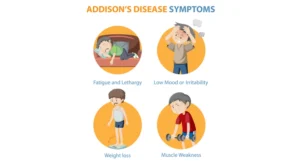Exploring The Powerful Bond Between Physical and Mental Health
By Ashley Shoptorshi Samaddar
May 23, 2023
Update on : May 23, 2023

American President John F Kennedy once said,
“Physical fitness is not only one of the most important keys to a healthy body, but it is also the basis of dynamic and creative intellectual activity.”
Over the years, extensive research has revealed the intricate relationship between physical well-being and mental state. It is now well-established that our bodies and minds are deeply intertwined, and the state of one significantly impacts the other.
This article will explore the fascinating connection between physical and mental health, delving into the various factors and mechanisms that underlie this relationship.
The biological link
Our bodies and brains are interconnected, and biological factors play a crucial role in this connection.
The brain, a complex organ responsible for our cognitive and emotional functions, relies on a delicate balance of neurotransmitters. Any imbalances in these brain chemicals can give rise to both physical and mental health disorders.
Conditions such as hormonal imbalances, chronic pain, and neurological disorders can have profound effects on mental well-being, further emphasizing the importance of a healthy body for optimal mental functioning.
Lifestyle choices matter
The choices we make in our daily lives regarding our physical health can have significant impacts on our mental well-being. Engaging in regular exercise, maintaining a nutritious diet, and ensuring sufficient sleep not only promote physical well-being but also positively affect our psychological health.
Exercise, in particular, has been found to release endorphins, often referred to as “feel-good” chemicals, which improve mood, reduce stress, and alleviate symptoms of anxiety and depression.
By incorporating healthy lifestyle choices, we create a foundation for both physical and mental wellness.
Inflammation and immune system
Chronic inflammation, a common symptom of health conditions such as obesity, cardiovascular disease, and autoimmune disorders, has been linked to an increased risk of mental health issues such as depression and anxiety.
The immune system, responsible for defending the body against harmful substances, plays a crucial role in regulating inflammation. The system and its interactions with the brain can influence mental wellbeing.
Understanding the role of inflammation and immune system dysregulation in mental health opens up new avenues for interventions that target both physical and mental well-being.
The psychological impact
Our psychological well-being can significantly affect us both physically and mentally. Stress, trauma, and negative life events can have profound effects on our overall well-being.
Chronic stress, for instance, triggers the release of stress hormones, which can lead to hypertension, cardiovascular diseases, and impaired immune function.
Furthermore, psychological distress increases the risk of mental health disorders. Recognizing and managing psychological factors is essential for promoting holistic health and well-being.
The power of social connections
Social support and interpersonal relationships play a vital role in maintaining both physical and mental health.
Strong social connections have been associated with better health outcomes and a reduced risk of mental illness. Engaging in meaningful relationships and cultivating a support network ensures emotional nourishment alongside a sense of belonging.
Social isolation and loneliness, on the contrary, can exert a negatively impact.
Holistic approaches to healthcare
To address the connection between physical and mental health effectively, it is crucial to adopt integrative healthcare approaches.
Recognizing that an individual’s well-being is influenced by various factors, including physical and mental health, is essential.
In the treatment of chronic illnesses, addressing mental health concerns such as depression or anxiety can significantly improve overall outcomes. Similarly, addressing physical health concerns can contribute to the improvement of mental health conditions.
Taking a holistic view and treating individuals as a whole can lead to better health outcomes and enhanced quality of life.
To conclude, the connection between physical and mental health is undeniable. By understanding and embracing this connection, we can take significant steps towards achieving optimal overall well-being.
Biological factors, such as imbalances in brain chemicals and the impact of physical health conditions on mental well-being, highlight the importance of maintaining a healthy body for optimal mental functioning. Remember, taking care of your body and mind is not a separate endeavor but rather a unified journey towards holistic health. Let us embrace this powerful connection and strive for overall well-being, knowing that a healthy body and a healthy mind go hand in hand.
Read More: Exploring The Powerful Bond Between Physical and Mental Health















